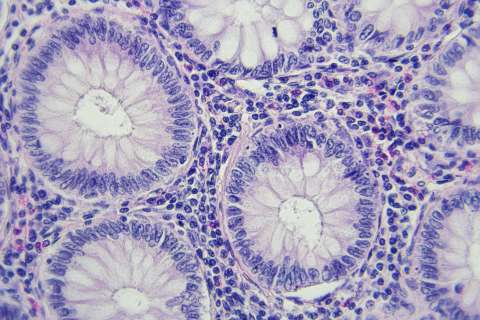In a study published online in Springer Nature, UCLA researchers have proven the impact of a new class of gene mutations on normal cellular biology. These mutations are in parts of the DNA that have only recently been discovered and shown to be powerful regulators in human biology. The mutation studied, called the KRAS-variant, has previously been shown to serve as a biomarker that can help people determine if they are at higher risk for certain cancers and also to help guide cancer treatment in KRAS-variant patients. The KRAS-variant is a germ-line mutation found in all cells and is passed from parents to their children.
The research found that the KRAS-variant changes the fundamental biology of normal breast cells grown in a tissue culture dish in a laboratory. The researchers noted that this gene mutation’s effect on changing normal breast cells is unique.
“These findings confirm what we have seen previously, that all tissues from KRAS-variant patients are fundamentally, biologically different,” said Dr. Joanne Weidhaas, a member of the UCLA Jonsson Comprehensive Cancer Center. “This type of mutation can help explain why some people have an increased cancer risk, as well as their unique response to cancer therapy. It confirms that this class of mutation could fundamentally change how we view people as individuals to understand their different cancer risk and response to treatment.”
The presence of the KRAS-variant can predict increased risk of non-small cell lung cancer, triple negative breast cancer in premenopausal women and ovarian cancer.
UCLA researchers presented these findings at the San Antonio Breast Cancer Symposium in December 2017.
The team that contributed to this study includes Song-yi Jung, Poonam Malhotra, Kiana Nguyen, David Salzman, Ethan Pak, Joshua King, Erina Vlashi and Joanne Weidhaas of UCLA; and Yue Qi and David Ann of City of Hope.




